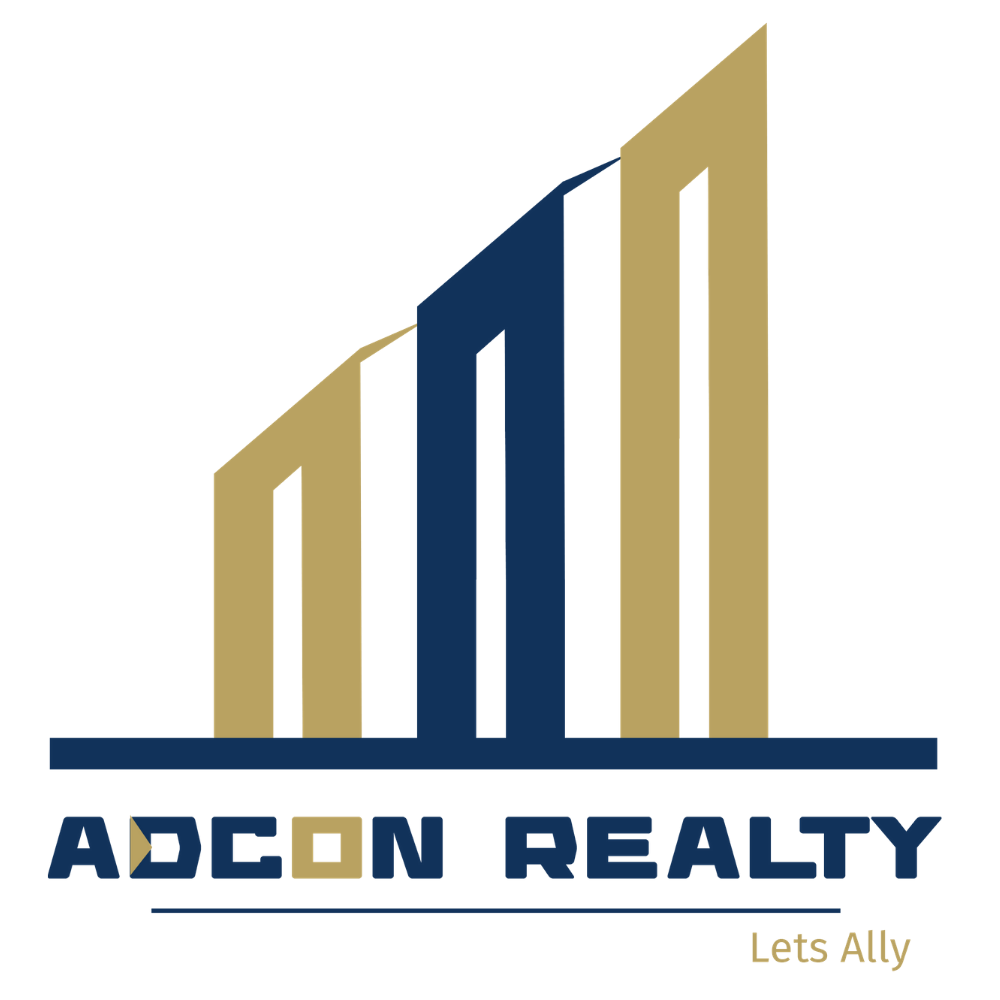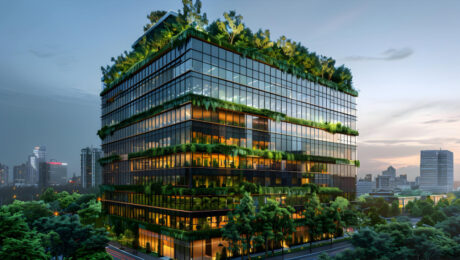Indore’s Emerging Commercial Hubs: A Deep Dive
Indore, often referred to as the commercial capital of Madhya Pradesh, has witnessed remarkable growth in recent years. The city, known for its vibrant culture, educational institutions, and economic potential, is rapidly transforming into a major business hub. As more companies seek to establish a presence in Indore, the demand for commercial spaces has surged, leading to the development of new commercial hubs across the city. In this blog, we’ll take a deep dive into Indore’s emerging commercial hubs, exploring what makes them attractive for businesses and investors alike.
1. Super Corridor: The IT Powerhouse in the Making
Super Corridor has become the talk of the town when it comes to commercial real estate in Indore. Strategically located near the Devi Ahilya Bai Holkar Airport, this area is poised to become the city’s IT and business corridor. The Madhya Pradesh government has been actively promoting Super Corridor as the next big thing in the IT sector, with several tech giants already showing interest in setting up operations here.
The key attraction of Super Corridor is its proximity to the airport and major highways, making it easily accessible for businesses and clients. Additionally, the area is witnessing significant infrastructure development, including the construction of wide roads, commercial complexes, and residential projects, making it an ideal location for companies looking to establish their offices in Indore.
Furthermore, the government’s focus on creating a conducive environment for IT companies through policies and incentives has further boosted the area’s appeal. With companies like TCS and Infosys already setting up their campuses here, Super Corridor is well on its way to becoming the IT powerhouse of central India.
2. Rau-Pithampur Road: The Industrial Hub with a Commercial Edge
Rau-Pithampur Road is another area that has seen tremendous growth in recent years. Traditionally known for its industrial base, with the presence of several large manufacturing units, this area is now emerging as a commercial hub as well. The expansion of industrial activities has spurred the demand for office spaces, especially for companies in logistics, warehousing, and manufacturing sectors.
The area’s growth is also driven by its excellent connectivity. The road connects Indore to Pithampur, one of the largest industrial areas in Madhya Pradesh, and further to the Mumbai-Agra National Highway, providing easy access to key markets. This connectivity has made Rau-Pithampur Road a preferred location for companies looking to establish their regional offices or distribution centers.
Moreover, the development of social infrastructure, including schools, hospitals, and residential projects, has made the area more attractive for employees, further driving the demand for commercial spaces. With more companies looking to capitalize on the area’s industrial and commercial potential, Rau-Pithampur Road is quickly becoming a sought-after destination for businesses.
3. AB Road: The Lifeline of Indore’s Commercial Scene
AB Road, also known as Agra-Bombay Road, has long been the backbone of Indore’s commercial landscape. This arterial road runs through the heart of the city, connecting major commercial areas, making it a prime location for businesses. Over the years, AB Road has seen the development of several high-end commercial complexes, retail spaces, and corporate offices.
One of the key factors that make AB Road a preferred commercial destination is its accessibility. The road connects the city center to various residential and commercial areas, ensuring a steady flow of traffic and customers. Additionally, the presence of well-established commercial centers, such as C21 Mall, Treasure Island Mall, and several corporate offices, has made AB Road a bustling commercial corridor.
The recent trend in the area is the development of mixed-use projects that combine commercial spaces with residential units, catering to the growing demand for integrated living and working spaces. This trend is attracting businesses that want to be close to their customers while providing convenience and lifestyle benefits to their employees.
4. Vijay Nagar: The Modern Business District
Vijay Nagar is arguably one of the most prominent and rapidly developing commercial areas in Indore. Located in the eastern part of the city, Vijay Nagar has transformed from a residential area into a bustling business district, home to some of the city’s most prestigious office spaces, shopping malls, and hotels.
The area’s growth can be attributed to its strategic location at the intersection of AB Road and the Ring Road, providing easy connectivity to other parts of the city. Over the years, several multinational companies, financial institutions, and IT firms have set up their offices in Vijay Nagar, making it a preferred choice for businesses looking for premium office spaces.
In addition to its commercial appeal, Vijay Nagar is also known for its vibrant social scene, with numerous restaurants, cafes, and entertainment options, making it an attractive location for both businesses and employees. The ongoing development of high-end commercial projects and the influx of multinational companies are further cementing Vijay Nagar’s position as a modern business district.
5. MR 10 Road: The Emerging Corridor for Commercial Growth
MR 10 Road is one of the newer areas in Indore that is quickly gaining attention as a commercial hub. Located on the outskirts of the city, MR 10 Road connects Super Corridor to the bypass road, providing excellent connectivity to major highways and the airport. The area is witnessing a surge in commercial real estate development, with several new office complexes and commercial projects under construction.
The area’s appeal lies in its proximity to Super Corridor and the airport, making it an ideal location for businesses looking for affordable yet strategically located office spaces. The availability of large plots of land has also attracted developers to create integrated commercial and residential projects, catering to the growing demand for holistic business environments.
As more companies look to expand their operations in Indore, MR 10 Road is expected to emerge as a key commercial corridor, offering a blend of modern infrastructure, strategic location, and growth potential.
Conclusion
Indore’s commercial real estate landscape is evolving rapidly, with several new areas emerging as prime business destinations. Whether it’s the IT-focused Super Corridor, the industrial-commercial mix of Rau-Pithampur Road, or the bustling business districts of AB Road and Vijay Nagar, each of these areas offers unique advantages for businesses and investors. As the city continues to grow and attract more companies, these emerging commercial hubs are set to play a crucial role in shaping Indore’s economic future. For businesses looking to establish a presence in central India, Indore’s commercial hubs present an exciting opportunity for growth and success.

A Business Expert from Indore, having strong ties in Pune & Hyderabad Foresightedness, Adaptability, and Reliability are some of his key domains of expertise.
- Published in Uncategorized
Legal Aspects of Leasing Commercial Property: What You Need to Know
Leasing commercial property can be a lucrative endeavor, whether you’re a landlord looking to lease out space or a business seeking the perfect location to grow. However, navigating the legal landscape of commercial leases is crucial to avoid potential pitfalls. This blog will delve into the key legal aspects of leasing commercial property, offering insights and tips to ensure a smooth leasing experience.
Understanding the Lease Agreement
The lease agreement is the cornerstone of any commercial property lease. It’s a legally binding document that outlines the rights and obligations of both the landlord and the tenant. Key elements typically include the lease term, rent amount, maintenance responsibilities, and renewal options.
1. Lease Term and Renewal
The lease term defines the duration of the lease. Commercial leases usually span three to ten years, depending on the property type and tenant’s requirements. It’s essential to clarify renewal options, including notice periods and any potential rent increases. Tenants should negotiate these terms to avoid unexpected costs or the need to relocate after the initial lease period.
2. Rent and Additional Costs
Rent is often the most significant financial obligation in a commercial lease. However, it’s not the only cost tenants should consider. Commercial leases often include additional charges such as common area maintenance (CAM) fees, property taxes, and insurance. Understanding these costs upfront and ensuring they are clearly stated in the lease agreement is vital to avoid surprises later.
3. Maintenance and Repairs
Responsibility for maintenance and repairs is another critical aspect of the lease agreement. Typically, commercial leases can be categorized into three types:
- Gross Lease: The landlord covers most expenses, including maintenance and repairs.
- Net Lease: The tenant is responsible for some or all property expenses, including maintenance, taxes, and insurance.
- Modified Gross Lease: A middle ground where both parties share the costs.
Tenants should carefully review the lease to understand their obligations and negotiate terms that align with their business’s financial capacity.
Legal Protections and Rights
Both landlords and tenants have certain legal protections and rights that should be respected and enforced.
1. Zoning Laws and Use Restrictions
Before signing a lease, it’s crucial to verify that the property is zoned for your intended use. Zoning laws regulate land use and can restrict certain business activities. For instance, you wouldn’t want to lease a property for a restaurant only to discover that the area is zoned for retail only. A thorough understanding of local zoning laws and any use restrictions included in the lease can prevent costly legal issues down the line.
2. ADA Compliance
The Americans with Disabilities Act (ADA) requires that commercial properties be accessible to individuals with disabilities. Landlords are generally responsible for ensuring common areas meet ADA standards, while tenants must ensure their specific business space is compliant. Non-compliance can result in hefty fines, so it’s essential to address this issue in the lease agreement.
3. Eviction and Termination Clauses
Understanding the eviction and termination clauses is crucial for both landlords and tenants. These clauses outline the conditions under which a lease can be terminated, such as non-payment of rent or violation of lease terms. Tenants should be aware of their rights, including the notice period for eviction and any opportunities to rectify issues before eviction proceedings commence.
Conclusion
Leasing commercial property involves navigating a complex legal landscape. Both landlords and tenants must thoroughly understand the lease agreement, including the terms of rent, maintenance responsibilities, and renewal options. Additionally, legal protections like zoning laws, ADA compliance, and eviction clauses should be carefully reviewed and negotiated to ensure a fair and beneficial leasing experience.
By paying close attention to these legal aspects, both parties can avoid common pitfalls and establish a successful, long-term leasing relationship. Remember, consulting with a legal professional before signing a lease is always a wise decision to protect your interests and ensure compliance with local laws.

A Business Expert from Indore, having strong ties in Pune & Hyderabad Foresightedness, Adaptability, and Reliability are some of his key domains of expertise.
- Published in Uncategorized
Sustainability in Office Spaces: A Growing Priority in India
As India continues to urbanize and expand its corporate sector, sustainability in office spaces has become more than just a buzzword—it’s a necessity. With increasing awareness about climate change and environmental degradation, businesses are recognizing the importance of adopting sustainable practices. Not only does this shift benefit the environment, but it also enhances employee well-being and can significantly reduce operational costs. In this blog, we’ll explore the key aspects of sustainability in office spaces and why it’s becoming a crucial factor for businesses in India.
The Need for Sustainable Office Spaces
India is one of the fastest-growing economies in the world, with a booming commercial real estate sector. However, this growth comes with a significant environmental impact. Commercial buildings in India consume about 40% of the total energy produced in the country, contributing heavily to carbon emissions. The increasing demand for energy and resources has made it imperative for businesses to adopt sustainable practices in their office spaces.
1. Energy Efficiency
Energy efficiency is at the core of sustainable office spaces. The use of energy-efficient lighting, such as LED bulbs, and energy-efficient appliances can significantly reduce a building’s energy consumption. In India, where electricity costs are high and power shortages are common, reducing energy usage not only lowers operational costs but also minimizes the strain on the national grid.
Moreover, integrating renewable energy sources like solar panels can further enhance energy efficiency. With India receiving ample sunlight throughout the year, solar energy is a viable and sustainable option for powering office spaces. Many businesses in India are already investing in solar power to meet their energy needs, contributing to a reduction in carbon footprints.
2. Water Conservation
Water scarcity is a pressing issue in many parts of India, making water conservation a critical aspect of sustainability in office spaces. Installing water-saving fixtures, such as low-flow taps and dual-flush toilets, can drastically reduce water consumption. Rainwater harvesting systems are also becoming increasingly popular in Indian office buildings, allowing businesses to collect and store rainwater for various uses.
Additionally, recycling and reusing wastewater through greywater systems can further reduce a building’s water footprint. These practices not only help conserve a precious resource but also align with government regulations and incentives aimed at promoting water efficiency.
3. Green Building Certifications
In India, the demand for green buildings is on the rise. Green building certifications like the Indian Green Building Council (IGBC) and Leadership in Energy and Environmental Design (LEED) are becoming benchmarks for sustainable office spaces. These certifications assess buildings on various sustainability parameters, including energy efficiency, water conservation, waste management, and indoor environmental quality.
Achieving a green building certification not only enhances a company’s reputation but also attracts environmentally conscious clients and employees. It also leads to long-term cost savings through reduced energy and water usage.
4. Indoor Air Quality
Indoor air quality is a critical component of a sustainable office space, particularly in urban areas of India where outdoor air pollution levels are high. Poor indoor air quality can lead to health issues such as respiratory problems and reduced productivity among employees.
To improve indoor air quality, businesses can invest in air purification systems, use low-VOC (volatile organic compounds) paints, and ensure proper ventilation. Incorporating indoor plants, known for their air-purifying properties, is another effective and aesthetically pleasing way to enhance air quality in office spaces.
The Business Case for Sustainability
Sustainability in office spaces is not just about environmental responsibility; it’s also good for business. Companies that adopt sustainable practices can benefit from lower operational costs, increased employee satisfaction, and a stronger brand image. Moreover, as more Indian consumers and investors prioritize sustainability, businesses that lead in this area are likely to gain a competitive edge.
Governments in India are also providing incentives for green buildings and sustainable practices, making it financially viable for businesses to invest in sustainability. For instance, some states offer property tax rebates for certified green buildings, further encouraging the adoption of sustainable practices.
Conclusion
Sustainability in office spaces is no longer optional—it’s a strategic imperative for businesses in India. By focusing on energy efficiency, water conservation, green building certifications, and indoor air quality, companies can reduce their environmental impact while reaping significant business benefits. As India continues to grow, the push for sustainable office spaces will only intensify, making it essential for businesses to stay ahead of the curve.

A Business Expert from Indore, having strong ties in Pune & Hyderabad Foresightedness, Adaptability, and Reliability are some of his key domains of expertise.
- Published in Office Spaces
Pune’s Emerging Commercial Hubs: A Deep Dive
Pune, often referred to as the “Oxford of the East,” has grown far beyond its reputation as an educational hub. Today, it stands as one of India’s most vibrant and rapidly expanding cities, particularly in the commercial real estate sector. With its strategic location, excellent connectivity, and burgeoning tech industry, Pune is attracting businesses from across the globe. As companies flock to the city, several new commercial hubs have emerged, offering state-of-the-art office spaces and a conducive environment for business growth. In this blog, we’ll explore some of Pune’s emerging commercial hubs, highlighting key properties that are setting new benchmarks in the city’s real estate landscape.
1. Hinjawadi: The IT Giant of Pune
Hinjawadi, located in the western part of Pune, is synonymous with the city’s IT boom. What started as a quiet suburb has now transformed into one of India’s largest IT parks, known as the Rajiv Gandhi Infotech Park. Spread across 2,800 acres, this area is home to some of the biggest names in the tech industry, including Infosys, Wipro, and Cognizant.
Key properties in Hinjawadi:
- Embassy TechZone: A sprawling IT campus offering world-class infrastructure and amenities, Embassy TechZone is one of the most sought-after properties in Hinjawadi. The complex houses several multinational companies and provides a conducive environment for innovation and collaboration.
- Blue Ridge SEZ: Another major development in Hinjawadi, Blue Ridge SEZ, offers a mix of office spaces, residential units, and retail outlets. Its strategic location and integrated township model make it an ideal choice for companies looking for a comprehensive business environment.
Hinjawadi’s appeal lies in its excellent connectivity to other parts of Pune via the Mumbai-Pune Expressway and the upcoming Pune Metro. Additionally, the area is surrounded by numerous residential complexes, making it convenient for employees to live and work in close proximity.
2. Baner-Balewadi: The Rising Star of Pune’s Commercial Scene
Baner and Balewadi, located along the Mumbai-Bangalore Highway, have emerged as the new commercial hotspots in Pune. Traditionally residential areas, these neighbourhoods have seen a surge in commercial real estate development in recent years, attracting companies from various sectors, including IT, finance, and consulting.
Key properties in Baner-Balewadi:
- Panchshil Business Park: Situated in Balewadi, this modern business park offers premium office spaces with top-notch amenities. Its proximity to residential areas and easy access to the highway make it a preferred choice for businesses looking to establish a presence in Pune.
- Nanospace IT Park: Located in Baner, Nanospace IT Park is a state-of-the-art commercial complex designed to cater to the needs of IT and tech companies. With its contemporary design and strategic location, it’s attracting a growing number of startups and established firms alike.
The Baner-Balewadi area is also known for its vibrant social scene, with numerous restaurants, cafes, and entertainment options, making it an attractive location for both businesses and employees. The ongoing infrastructure developments, including the expansion of the highway and the upcoming Metro line, are further boosting the area’s appeal.
3. Kharadi: Pune’s New Commercial Nucleus
Kharadi, located in the eastern corridor of Pune, has quickly emerged as one of the city’s most significant commercial hubs. Once a quiet suburb, Kharadi has undergone a rapid transformation, thanks to its strategic location near the Pune Airport and the presence of several IT parks.
Key properties in Kharadi:
- EON Free Zone: A landmark development in Kharadi, EON Free Zone is one of the largest IT parks in Pune, spread over 45 acres. It offers world-class office spaces and is home to several Fortune 500 companies, making it a key driver of Kharadi’s commercial growth.
- World Trade Center Pune: Another iconic property in Kharadi, the World Trade Center (WTC) Pune, offers premium office spaces with global standards of infrastructure. The WTC has become a preferred destination for multinational corporations and large enterprises.
Kharadi’s growth can be attributed to its excellent connectivity to major highways, proximity to the airport, and the presence of high-quality residential developments. Additionally, the area’s infrastructure is continuously evolving, with new roads, flyovers, and public transportation options being developed to support its growing commercial activities.
4. Viman Nagar: The Upscale Commercial District
Viman Nagar, located close to Pune Airport, has rapidly developed into one of Pune’s most upscale commercial districts. Known for its proximity to key areas like Kalyani Nagar and Koregaon Park, Viman Nagar has attracted a mix of IT companies, retail outlets, and hospitality businesses.
Key properties in Viman Nagar:
- Weikfield IT Citi Info Park: A prominent IT park in Viman Nagar, Weikfield IT Citi Info Park offers modern office spaces with excellent infrastructure. Its strategic location near the airport and easy access to other parts of the city make it a prime choice for businesses.
- Phoenix Marketcity: While primarily a retail property, Phoenix Marketcity also houses several premium office spaces. Its mixed-use nature and central location make it a popular choice for companies looking for a dynamic business environment.
Viman Nagar’s appeal lies in its excellent connectivity, upscale residential options, and a vibrant social scene. The area is well-connected by road and public transport, making it easy for employees to commute. Additionally, the presence of high-end hotels, restaurants, and shopping centers adds to its attractiveness as a commercial hub.
5. Magarpatta City: The Integrated Township Model
Magarpatta City, located in the eastern part of Pune, is a unique example of an integrated township that has successfully combined commercial, residential, and recreational spaces. Spread over 600 acres, Magarpatta City is home to several IT parks, residential complexes, and recreational facilities, making it a self-sufficient ecosystem.
Key properties in Magarpatta City:
- Cybercity IT Park: A major IT hub within Magarpatta City, Cybercity IT Park offers world-class office spaces and amenities. It’s home to several multinational companies and has become a key driver of the area’s economic growth.
- Pentagon Towers: Another prominent commercial property in Magarpatta City, Pentagon Towers, offers premium office spaces with modern amenities. Its strategic location within the township makes it an attractive choice for businesses.
Magarpatta City’s success lies in its integrated approach to urban planning, which has created a balanced environment for work, living, and leisure. The township’s self-sufficiency, combined with its excellent infrastructure and connectivity, makes it a preferred destination for companies looking for a holistic business environment.
Conclusion
Pune’s commercial real estate landscape is evolving at a rapid pace, with several new areas emerging as prime business destinations. Whether it’s the IT-centric Hinjawadi, the modern business districts of Baner-Balewadi, or the integrated township of Magarpatta City, each of these areas offers unique advantages for businesses and investors. As Pune continues to grow and attract more companies, these emerging commercial hubs are set to play a crucial role in shaping the city’s economic future. For businesses looking to establish a presence in one of India’s most dynamic cities, Pune’s commercial hubs present an exciting opportunity for growth and success.

A Business Expert from Indore, having strong ties in Pune & Hyderabad Foresightedness, Adaptability, and Reliability are some of his key domains of expertise.
- Published in Uncategorized
Shared vs. Private Office Spaces: Which is Right for Your Business?
Choosing the right office space is a crucial decision for any business. The choice often boils down to two primary options: shared office spaces and private office spaces. Each option has its own set of advantages and disadvantages, cost implications, and impacts on productivity. Let’s delve into the pros and cons of each to help you decide which is right for your business.
Shared Office Spaces
Shared office spaces, often known as coworking spaces, are communal work environments where multiple businesses or individuals share facilities and amenities.
Pros:
- Cost-Effective:
- Shared office spaces generally come at a lower cost compared to private offices. You pay for the space you use, which is ideal for startups and small businesses with tight budgets.
- Networking Opportunities:
- Working alongside other businesses and professionals creates ample networking opportunities. It can lead to collaborations, partnerships, and business growth.
- Flexibility:
- Most coworking spaces offer flexible lease terms. You can rent a desk or a small office for a day, month, or year, making it easy to scale up or down as needed.
- Amenities:
- Coworking spaces typically come with a range of amenities such as high-speed internet, meeting rooms, kitchen facilities, and recreational areas, all included in the rental price.
- Community and Support:
- Being part of a coworking community can provide moral support, foster creativity, and reduce the isolation that can come with working alone or in a small team.
Cons:
- Lack of Privacy:
- Shared spaces mean limited privacy. This can be a drawback for businesses that handle sensitive information or need a quiet environment.
- Distractions:
- The bustling environment of a coworking space can be distracting for some people, potentially affecting productivity.
- Branding Limitations:
- It’s challenging to establish a strong, unique brand presence in a shared space since the environment is not tailored to your business.
- Limited Control:
- You have less control over the office environment, including layout, decoration, and operational hours.
Private Office Spaces
Private office spaces are dedicated work environments exclusively for your business. They can be part of a larger office building or a standalone unit.
Pros:
- Privacy and Security:
- Private offices offer a high level of privacy and security, which is essential for businesses dealing with confidential information or requiring a quiet work environment.
- Customizability:
- You have complete control over the office layout, design, and branding. This helps create a space that reflects your company’s identity and culture.
- Fewer Distractions:
- A private office typically has fewer distractions compared to a shared space, potentially leading to higher productivity for some employees.
- Professional Image:
- Having a dedicated office space can enhance your company’s professional image and credibility with clients and partners.
Cons:
- Higher Costs:
- Private office spaces are generally more expensive than shared spaces. You need to budget for rent, utilities, maintenance, and furnishing.
- Longer Lease Terms:
- Leasing a private office often requires a longer-term commitment, which might not be ideal for businesses expecting significant changes in size or location needs.
- Isolation:
- Unlike coworking spaces, private offices can lead to a sense of isolation, particularly for small teams or solo entrepreneurs.
- Operational Responsibilities:
- Managing a private office includes additional responsibilities such as dealing with utility providers, maintenance issues, and security.
Cost Analysis
Shared Office Space:
- Rent: Typically charged per desk or small office, ranging from INR 5,000 to INR 20,000 per month.
- Utilities and Amenities: Usually included in the rent, covering internet, electricity, water, and shared facilities.
- Additional Costs: Minimal, as coworking spaces often include furniture and cleaning services.
Private Office Space:
- Rent: Can range from INR 20,000 to INR 1,00,000+ per month, depending on location and size.
- Utilities: Billed separately for electricity, water, internet, etc.
- Additional Costs: Higher due to the need for furniture, maintenance, security, and cleaning services.
Productivity Impacts
Shared Office Space:
- Positive Impact: Enhanced creativity and collaboration opportunities; flexible working hours.
- Negative Impact: Potential for distractions and noise; less control over the work environment.
Private Office Space:
- Positive Impact: Quiet and controlled environment; tailored space to boost employee morale and productivity.
- Negative Impact: Possible isolation; higher management burden can divert focus from core business activities.
Conclusion
The decision between shared and private office spaces ultimately depends on your business needs, budget, and work culture. Shared office spaces are ideal for startups, freelancers, and small businesses seeking flexibility, cost-efficiency, and networking opportunities. Private office spaces, on the other hand, are better suited for established businesses that require privacy, customization, and a professional image.
Evaluate your specific requirements, consider the pros and cons, and conduct a cost-benefit analysis to make an informed decision that will support your business growth and productivity.

A Business Expert from Indore, having strong ties in Pune & Hyderabad Foresightedness, Adaptability, and Reliability are some of his key domains of expertise.
- Published in Office Spaces









